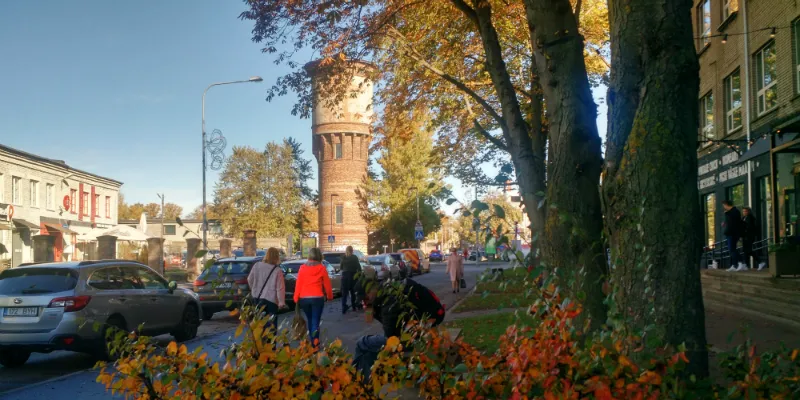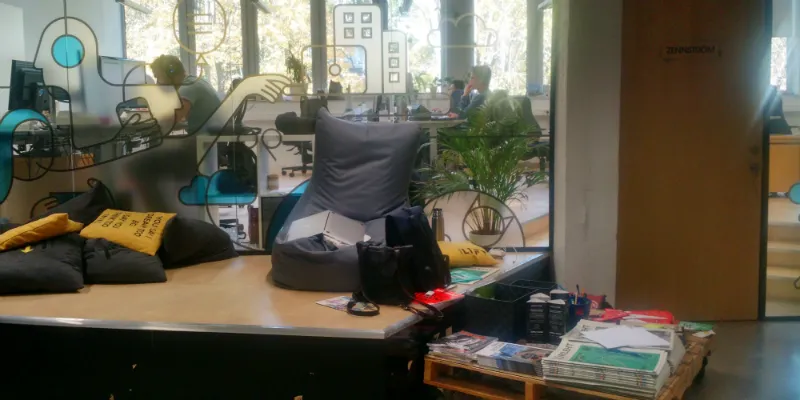How EstoniaMafia is showing it is the Godfather of raising successful startups
A look at the thriving startup ecosystem in Estonia and what makes it unique with the most unicorns per capita in the world.

“There’s no other place as small where you can find four unicorns running free.” This succinctly sums up the thriving startup ecosystem in far away, remote Estonia.
The geographically challenged can be pardoned for failing to locate the country, but if you cannot recall Skype, then, perhaps it is best to continue living under a rock.
What Nokia is to Finland, Skype is to Estonia -- its ticket to global fame and recognition. During a visit to Skype’s Palo Alto office a few years ago, former Estonian President Toomas Hendrik Ilves is reported to have said: “Not many know where Estonia is, but everyone knows Skype. So now I say I’m the President of the country where Skype is.”
The internet phone service company was launched from Estonia in 2003 and by the time it was acquired by eBay in 2005 for $2.6 billion, the founders had become rock stars in their country. (Through various turn of events, Skype ultimately fell into the hands of Microsoft that acquired it for $8.5 billion in 2011.)
Skype unleashes EstoniaMafia
Skype's success attracted big money from Silicon Valley to this tiny country, helping it spinoff many other high-growth tech startups. Reportedly, venture capitalist Dave McClure coined the Twitter hashtag #EstoniaMafia to describe the startup scene in the country.
Estonia is now the country with the most unicorns per capita in the world. The other three unicorns besides Skype in Estonia are ride-sharing app Taxify, online casino software platform Playtech, and peer-to-peer money transferring service TransferWise.
Today, there are nearly 550 tech startups in Estonia, and it is predicted to grow to 1,000 startups by 2020. Approximately 4,600 jobs have been created, 75 percent in Estonia and 25 percent all over the world where their (startups) markets are.
Close to one billion Euros have been raised in the past 12 years by Estonian startups, the money mostly coming from Silicon Valley and Europe.
Taxify recently raised a big round of 150 million euros led by the German automotive giant Daimler and China’s Didi. It is also one of the first few startups that has, in addition, raised money from within Estonia. A rival to Uber, Taxify has nonetheless made its mark in other markets like Africa.
According to Startup Estonia, a government initiative aimed at making Estonia one of the best places for startups, Taxify has seen a tremendous growth and at present has 500,000+ drivers and 10+ million users.

In 2017, the number of employees working at Taxify’s headquarters in Tallinn increased from 30 to 174 (additionally more than 150 in their offices abroad) and its turnover increased 6x from 2.8 million euros to 17 million euros. In the first six months of 2018, Taxify has added 34 new employees and their turnover is already bigger than in 2017 - reaching 20 million euros.
Tech support
A country of just 1.3 million people (just for perspective, Bengaluru alone has a population of 8.5 million), Estonia betted big on technology to leapfrog into a digitally superior nation following a dark past.
(Watch Viljar Lubi, Deputy Secretary-General for Economic Development at Estonian Ministry of Economic Affairs and Communications, talk about Estonia's e-Residency programme.)
Its coveted e-Residency programme has many nations and businesses rooting for Estonia like never before. At present, Estonian citizens and e-residents can avail 99 percent services online. With its strong cybersecurity and data protection policies, Estonia is enabling doing business very quick and easy. For example, its unique digital signature project (where you can e-sign documents) saves the country two percent of the GDP.
When I arrived at Lift99, a co-working, startup hub, situated in the upmarket Telliskivi area of Tallinn, it was difficult to miss the usual startup trappings -- bean bags strewn across, a pingpong table, an event space, a well-stocked pantry and kitchenette, and of course words of wisdom from great leaders for inspiration pasted across the walls.

Yet, the place exuded its unique Estonian vibe with its EstoniaMafia Wall of Fame that has 19 home-bred startups represented on it. The inclusion criteria are based on annual growth, annual revenue, and the amount of taxes paid to the Estonian government. A representative showed us around and informed us that the signature of Niklas Zennström, the father of Skype, at the bottom “represents the seed that Skype once planted – its tremendous impact on Estonian startup ecosystem.”
Another interesting aspect was the replacement of chairs around a large table in the meeting room with swings. A sure shot way to make meetings interesting and well, err, swinging.

According to Startup Estonia data, in 2017, its startups generated 275 million euros in annual turnover, and this year 55 percent of it has already been reached. The second half of the year last year was more active than the first half, thus when comparing with the first half-year of 2017, there’s an 11 percent growth.
“We’re on the road to another record year for startup investments. With 245.6 million euros currently invested in Estonian startups during the first six months, we are just 26.5 million euros away from reaching the last year's investment amount. Experts have said, that we can expect up to 350 million euros of investments by the end of the year,” said Merilin Lukk, Startup Visa Project Manager, at Startup Estonia.
In total, there have been 15 deals, making the average deal size 16.3 million euros. Last year, the average deal size was 6.8 million euros; the year before that, it was around 1 to 2.5 million euros. The high average deal size is driven by some big rounds.
Startup visa
Though many challenges remain, Estonia is making up for the lack of diversity by making it easy and simpler for tech talent to work in the country. The startup visa programme was launched in January 2017 and is an example of how startups and the government can come together to create an environment for innovation.
Merilin informs us that most interest comes from countries like Ukraine, India, Russia, and Turkey. The startup visa programme works best for non-EU (European Union) founders who want to set up their business in EU, as well as for Estonian startups looking to hire foreign talent.
Interestingly, it is important for Startup Estonia to show how much employment taxes they pay. Startups in the country have paid more than 35 million euros in employment taxes, and it is expected to increase by another 30 percent this year.
Whoever said size matters was probably referring to Estonia’s positive spirit, its go-getter attitude, and most-importantly its tremendous tech acumen -- all huge enough to spill across its borders.
Listen to what some startups in Estonia have to say:
Here's a look at the upmarket Telliskivi in Tallinn where old buildings have been converted into designer cafes, art galleries, shops, and co-working spaces.
(Images and videos by the author)







